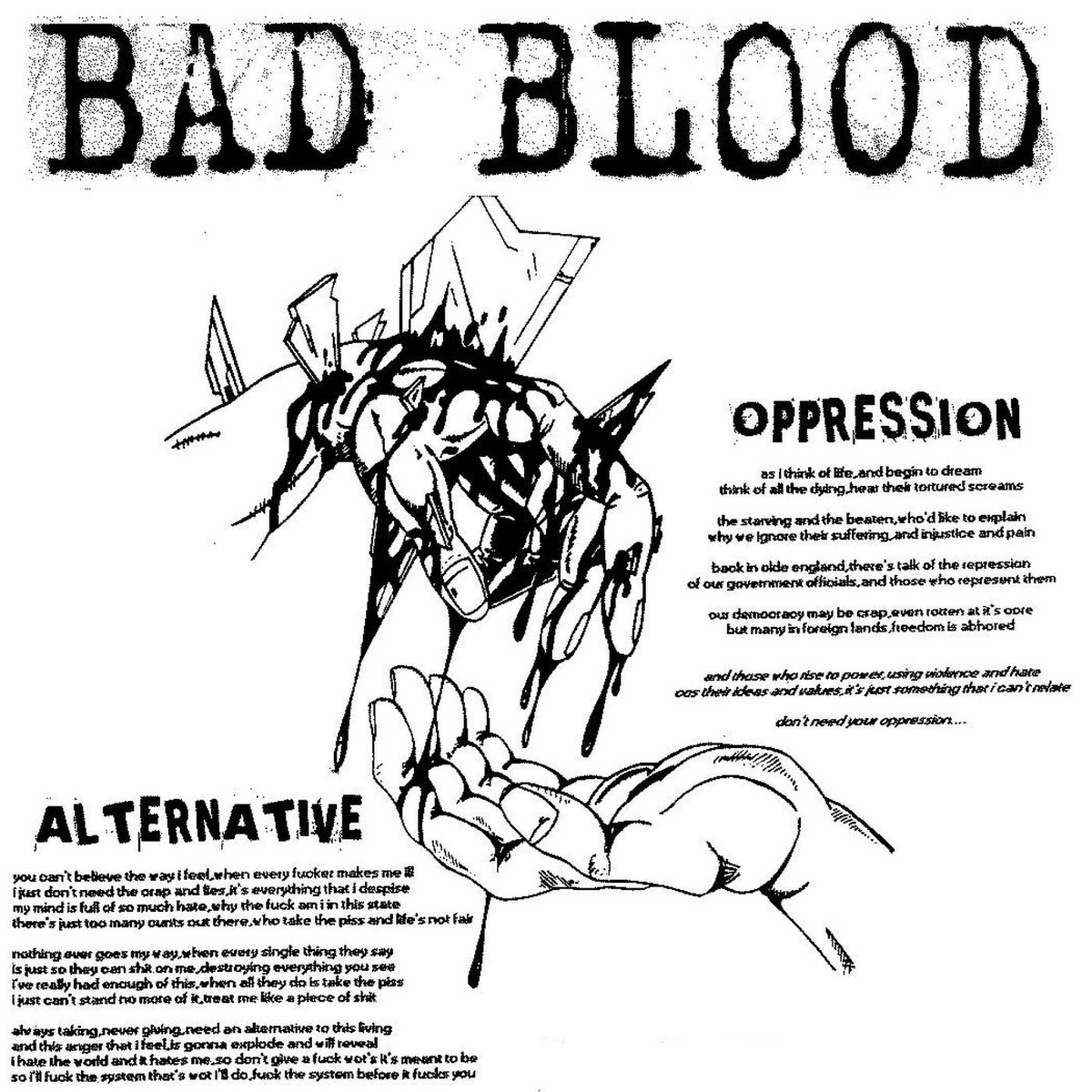Alright folks, let me tell you something real quick. When we talk about bad blood Korea, we’re diving into a world where family drama, corporate wars, and K-pop feuds collide. It’s not just about a disagreement or two—it’s a full-blown cultural phenomenon that has shaped modern Korea in ways you might not even realize. So, buckle up because we’re about to take you on a ride through the tangled web of Korean family feuds, corporate scandals, and celebrity beef. And trust me, it’s juicier than you think.
Now, if you’re scratching your head wondering what exactly bad blood Korea is, let me break it down for you. It’s not just about people being mad at each other. It’s about deep-rooted conflicts that span generations, often involving some of the most powerful families and companies in the country. From the chaebols (those big family-owned conglomerates) to the K-pop industry, this is where business meets personal vendettas. And let’s be honest—it’s a recipe for chaos.
But why should you care? Well, because these feuds have ripple effects that touch almost every aspect of life in Korea. Whether it’s the economy, politics, or entertainment, the bad blood running through the veins of Korea’s elite affects everyone. So, whether you’re a K-drama fanatic, a K-pop stan, or just someone curious about how things work in the Land of the Morning Calm, this is a story you don’t want to miss.
Read also:Hugh Jackman Nudes The Truth Behind The Headlines And What You Need To Know
Table of Contents
- What is Bad Blood Korea?
- History of Bad Blood Korea
- Chaebols and Their Feuds
- K-pop Rivalries: The Real Deal
- Celebrity Drama: Beyond the Glitz and Glam
- Political Scandals: When Bad Blood Meets Power
- Economic Impact of Bad Blood
- How the Media Represents Bad Blood Korea
- Cultural Impact on Korean Society
- Conclusion: What Lies Ahead?
What is Bad Blood Korea?
Let’s get one thing straight—bad blood Korea isn’t just a catchy phrase. It’s a term that encapsulates the deep-rooted animosity and conflicts that have plagued Korea’s social, economic, and political landscapes for decades. These feuds often stem from family disputes, business rivalries, and even national pride. Picture this: families who have been at odds for generations, companies competing for dominance, and celebrities battling it out for fame. It’s like a Shakespearean drama but with a modern twist.
And you know what? It’s not all bad. While the drama can be intense, it also drives innovation, competition, and sometimes even reconciliation. But don’t get me wrong—it’s not all rainbows and butterflies. The bad blood running through Korea’s veins can be toxic, leading to scandals, lawsuits, and even criminal charges. So, whether you’re rooting for one side or the other, there’s no denying that bad blood Korea is a force to be reckoned with.
History of Bad Blood Korea
From Ancient Times to Modern Day
Believe it or not, the roots of bad blood Korea go way back. We’re talking ancient kingdoms, royal families, and power struggles. Back in the day, Korea was divided into various kingdoms, each vying for control. Fast forward to the modern era, and you’ll see that the same spirit of competition lives on, albeit in a slightly different form. Today, it’s not about swords and shields—it’s about boardroom battles and social media wars.
One of the most famous historical feuds in Korea is the rivalry between the Joseon Dynasty and the Goryeo Dynasty. This conflict wasn’t just about who would rule the land—it was about ideology, culture, and legacy. Sound familiar? Replace the dynasties with modern-day chaebols, and you’ve got a pretty accurate picture of what’s happening today.
Chaebols and Their Feuds
When Family Business Turns Sour
Okay, let’s talk about the big players in Korea’s economy—the chaebols. These family-owned conglomerates are the backbone of Korea’s economic success, but they’re also the source of some of the most intense feuds in the country. Think Samsung vs. LG, Hyundai vs. Kia, and the list goes on. These companies are like siblings who grew up in the same household but ended up hating each other’s guts.
But why does this happen? Well, it’s a mix of factors. First, there’s the pressure to succeed. These families are expected to maintain their legacy and grow their businesses, which often leads to fierce competition. Second, there’s the issue of succession. When it comes time to pass the torch, things can get messy. And lastly, there’s just plain old-fashioned greed. Let’s be real—when there’s money involved, people tend to lose their cool.
Read also:Tradewinds Tavern San Diego Your Ultimate Coastal Getaway
K-pop Rivalries: The Real Deal
Beyond the Music
Now, let’s shift gears and talk about something a little more fun—K-pop rivalries. If you’ve ever been a part of a K-pop stan culture, you know that the feuds between fans can get pretty heated. But it’s not just the fans—it’s the artists themselves who sometimes have their own beef. From BTS vs. EXO to Blackpink vs. TWICE, these rivalries are the stuff of legend.
But what makes K-pop rivalries so special? Well, for one, it’s the sheer size of the industry. With so many groups vying for the top spot, it’s inevitable that some tensions will arise. Plus, the media loves to stir the pot, blowing up small disagreements into full-blown scandals. And let’s not forget the fans—they have a way of amplifying everything, whether it’s a compliment or a criticism.
Celebrity Drama: Beyond the Glitz and Glam
The Dark Side of Fame
When we think of celebrities, we often picture them living a glamorous life. But behind the scenes, it’s a different story. Korean celebrities, in particular, face immense pressure to maintain their image, which sometimes leads to conflicts with others in the industry. Whether it’s a disagreement over a role, a comment gone wrong, or even a rumored affair, the drama is real.
One of the most infamous celebrity feuds in Korea is the rivalry between Park Shin-hye and Song Hye-kyo. These two actresses have been compared to each other for years, leading to speculation about their relationship. While they’ve both denied any animosity, the rumors persist. And that’s just the tip of the iceberg. From fashion designers to directors, the entertainment industry in Korea is full of bad blood.
Political Scandals: When Bad Blood Meets Power
The Politics of Personal Vendettas
Now, let’s talk about something a little more serious—political scandals. In Korea, politics is a cutthroat game, and bad blood runs deep. From corrupt politicians to scandals involving chaebols, the political landscape is rife with conflict. One of the most famous political scandals in recent years is the impeachment of former President Park Geun-hye. Her downfall was tied to her close relationship with Choi Soon-sil, a family friend who allegedly used her influence for personal gain.
But it’s not just about individuals—it’s about systemic issues. The bad blood in Korean politics often stems from historical grievances, ideological differences, and power struggles. And when you mix that with the influence of chaebols, you’ve got a recipe for disaster. So, whether you’re a fan of politics or not, it’s hard to ignore the impact that bad blood has on the country’s leadership.
Economic Impact of Bad Blood
When Personal Vendettas Hurt the Economy
Let’s not forget about the economic impact of bad blood Korea. When powerful families and companies are at odds, it can have serious consequences for the economy. For example, the feud between Samsung and LG has led to missed opportunities for collaboration, which could have benefited both companies and the country as a whole. And when you consider the global reach of these companies, the impact is even greater.
But it’s not all doom and gloom. Sometimes, bad blood can lead to positive change. For example, the competition between chaebols has driven innovation and pushed companies to be better. So, while the drama might be intense, it’s not all bad. It’s just… complicated.
How the Media Represents Bad Blood Korea
The Power of Perception
The media plays a huge role in shaping how bad blood Korea is perceived. Whether it’s through news reports, K-dramas, or social media, the way these conflicts are portrayed can have a big impact on public opinion. For example, K-dramas often depict family feuds and corporate rivalries in a dramatic, over-the-top way. While it might not always be accurate, it certainly makes for good entertainment.
But the media also has a responsibility to report the truth. In a country where bad blood runs deep, it’s important to separate fact from fiction. And let’s be honest—sometimes the media gets it wrong. So, while it’s fun to dive into the drama, it’s also important to take everything with a grain of salt.
Cultural Impact on Korean Society
A Nation Divided?
Finally, let’s talk about the cultural impact of bad blood Korea. While the feuds might seem like a small part of daily life, they actually shape the way people think and act. For example, the emphasis on family honor and legacy can sometimes lead to unhealthy competition and resentment. And when you consider the role of chaebols in society, it’s easy to see how these conflicts can affect everyone.
But it’s not all bad. The bad blood in Korea also fosters a sense of community and shared history. People are passionate about their heritage and are willing to fight for what they believe in. So, while the drama might be intense, it’s also a testament to the resilience and determination of the Korean people.
Conclusion: What Lies Ahead?
So, there you have it—the untold story of bad blood Korea. From ancient dynasties to modern-day chaebols, the conflicts and rivalries in Korea are as old as time itself. But while the drama might seem never-ending, it’s important to remember that these feuds also drive change and innovation. Whether it’s in the business world, the entertainment industry, or the political arena, bad blood is a force to be reckoned with.
As we look to the future, it’s clear that the bad blood running through Korea’s veins will continue to shape the country in ways both positive and negative. So, whether you’re a fan of the drama or not, it’s hard to deny the impact that these conflicts have on everyday life. And who knows? Maybe one day, the feuds will give way to reconciliation and understanding. But until then, we’ll just have to keep watching the show.
So, what do you think? Are you Team Chaebol or Team K-pop? Let me know in the comments below, and don’t forget to share this article with your friends. Because let’s be real—everyone loves a good drama!


